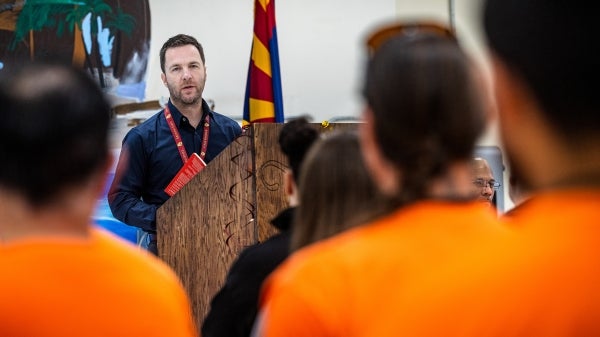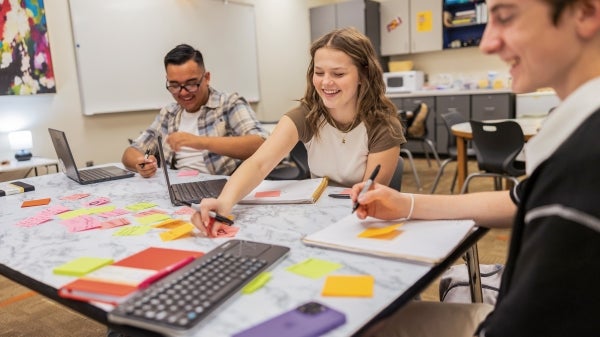Loretta LeMaster is dedicated to scholarship that pushes for social change and promotes justice and inclusion.
The assistant professor of critical/cultural communication in Arizona State University's Hugh Downs School of Human Communication produces critical scholarship focusing on the experiences and wellness of transgender people.
To that end, LeMaster — along with Hugh Downs School Associate Professor Alaina Zanin — has received a seed grant from the ASU Global Sport Institute to understand how transgender and gender-nonconforming athletes cultivate a sense of belonging in sport organizing, despite the racialized histories and binary structures that govern contemporary sport organizations.
“My work connects with a number of ongoing issues in the news,” said LeMaster, “including the abhorrent everyday violence organizing everyday lives of transgender people and transgender women, and femmes of color especially.”
Across the nation, transgender athletes have faced protests and legislation that bans trans women and girls from participating on teams that match their gender identity in middle and high school. According to a recent Washington Post-University of Maryland poll, many Americans oppose allowing transgender female athletes to compete against other women at the professional, college and high school level.
LeMaster and Zanin’s work, which is based on data from interviews with 20 transgender and gender-nonconforming athletes, describes the struggle these athletes experience between feeling included and excluded within sports contexts. They advocate for an end to exclusionary politics within and beyond the context of organized sports.
LeMaster is the recipient of an Early Career Award from the International Association of Autoethnography and Narrative Inquiry in 2021. She won the Best Book Award from the ethnography division of the National Communication Association in 2020 for a book she co-edited that questions what we think we know about gender and its intersections — via discourses, institutions and structures. This book has been touted as a “must-read” for anyone wanting to broaden their perspective on non-normative gender and identity issues.
LeMaster also promotes social change through her focus on critical pedagogies designed to enact principles of justice through teaching. She is recipient of the Outstanding Faculty Mentor Award from the ASU Faculty Women’s Association and the Exemplary Teaching Award from the communication and instruction interest group of the Western States Communication Association.
She is currently working on a new book titled "Pedagogies of the Enfleshed: Critical Communication Pedagogy Otherwise." The book will move beyond calls for educational reform and instead forge a path toward new and inclusive ways of thinking about and teaching communication.
In spring 2022, LeMaster taught a new course called Critical Conversations. This course was designed to help students learn how to better navigate conversations about difficult and sensitive topics such as gender identity and race.
“Questions of justice, equity, diversity and inclusion are the threads connecting my work,” she said.
She is also working to establish a transgender wellness center in the region to give transgender people a variety of resources, ranging from health care to legal advocacy, and food and shelter.
“I look forward to realizing this dream,” she said.
More Arts, humanities and education

ASU professor, Arizona inmate work to rehabilitate the 'imprisoned mind'
An Arizona State University professor has collaborated with an Arizona inmate on a book that examines why investing in healing…
Illuminating legacy at ASU
In 2020, the ASU Art Museum unveiled a groundbreaking installation, "Point Cloud (ASU)," by renowned artist Leo Villareal. The…

Name change for ASU's Mary Lou Fulton Teachers College reflects college's mission
Arizona State University’s Mary Lou Fulton Teachers College has a new name: the Mary Lou Fulton College for Teaching and Learning…
